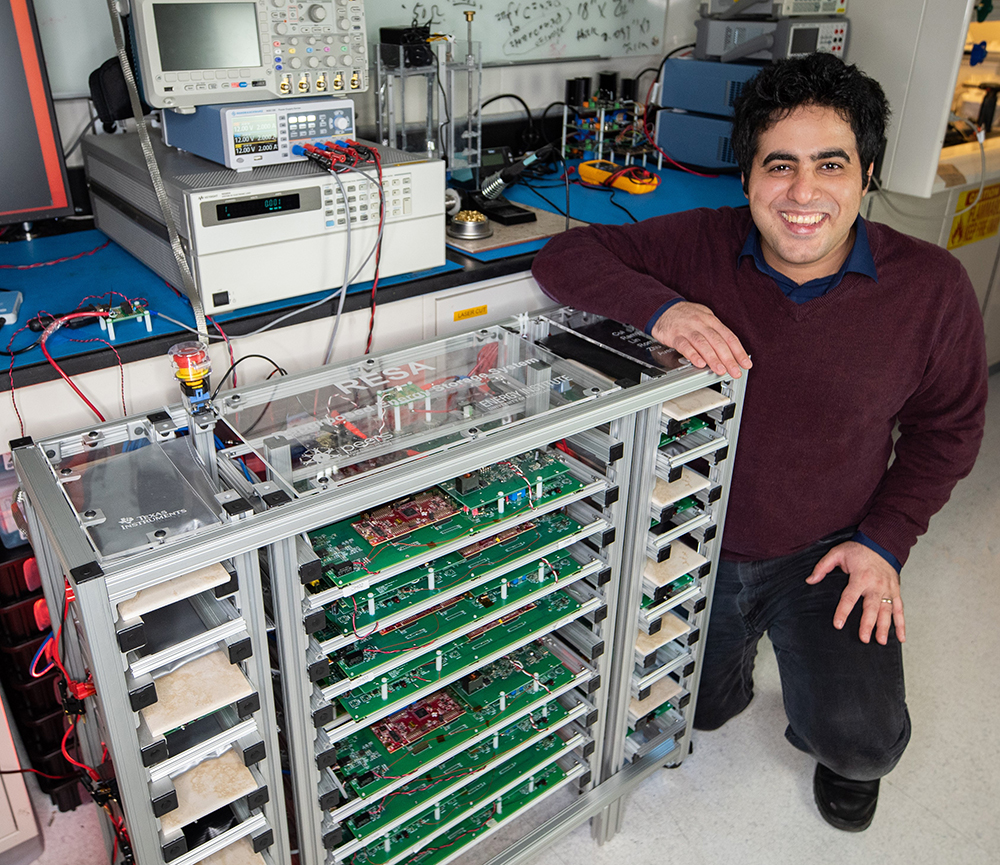Alireza Ramyar awarded Rackham Predoctoral Fellowship for his research on power processing architectures for improved sustainability

ECE PhD student, Alireza Ramyar, has been awarded a Rackham Predoctoral Fellowship to support his research on power processing architectures for sustainable power and energy.
Ramyar designs architectures and methods that efficiently extract power from solar photovoltaic systems. By processing power through power electronics interfaces, Ramyar aims to improve the efficiency, reliability, and integration of renewable power and energy.
“Power electronics is the central pillar of sustainable power and energy systems,” Ramyar said.
Ramyar also researches Second‐Use Battery Energy Storage Systems (2‐BESS). 2-BESS can be used as energy buffers for the power grid, which helps support electric vehicles’ fast charging and solar photovoltaic systems. Fast charging is crucial as the demand for electric vehicles continues to grow. However, the increase of electric vehicles will also increase the amount of retired batteries. 2‐BESS can provide an outlet for these retired batteries, while also helping to reduce the waste incurred from using new batteries for grid energy storage.
“These batteries, when removed from electric vehicles (EV), still have approximately 80% capacity and power capability,” Ramyar said. “Reusing these batteries as second-use battery energy storage systems provides a sustainable solution that adds economic value to EV batteries.”
Finally, Ramyar is working to create a canonical framework for energy networks, such as power systems and power electronics architectures. The framework will help to design, optimize, and control heterogeneous energy networks. He is specifically focused on modeling power processing architectures for sustainable energy resources.
Ramyar’s proposed dissertation title is, “Power Processing Architectures for Sustainable Power and Energy.” He’s advised by Prof. Al-Thaddeus Avestruz. Ramyar earned his BS in Electrical Engineering from Sharif University of Technology and his MS in Electrical Engineering from the University of Tehran.
 MENU
MENU 
